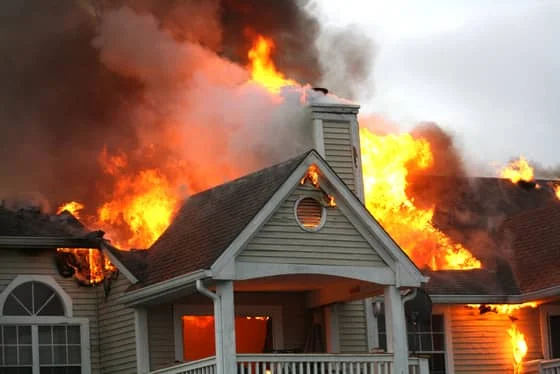When a fire devastates your home, the immediate aftermath brings forth a whirlwind of emotions and practicalities that are difficult to manage. Amidst the need for safety, temporary housing, and dealing with insurance matters, the question of what to do with your damaged property looms ominously. For homeowners facing this challenging scenario, Having a comprehensive knowledge of the process to sell a fire-damaged house in North Carolina is paramount. This quick guide presents an overview of your options, from navigating insurance claims to making informed decisions about selling your fire-damaged property.
Assessing the Damage
After a fire, your first step should be assessing the extent of the damage. Safety always takes precedence, so ensure you have professional clearance to enter the property. Document the damage thoroughly; this includes taking photographs and noting any specific issues you encounter. This information is not only essential for insurance claims but also for potential buyers to understand the true condition of the property. From structural damage to the loss of personal belongings, the more you can document, the better. Ensure your evidence is well-dated, comprehensive, and secure. It’ll come in handy when dealing with insurance and during the sale process.
Deciding: Repair or Sell
Once you’ve assessed the extent of the damage, it’s time to make a pivotal decision that could significantly affect your financial and emotional recovery. Would you opt to restore the property, or is selling it in its current state the wiser choice?
While repairing a fire-damaged property can potentially fetch a higher selling price, it demands time, financial commitment, and a patient oversight of the renovation process. It’s crucial to acknowledge the emotional strain of returning to a space that has endured a fire.
On the other hand, selling your home as-is offers a faster resolution and spares you the renovation-related stresses. Nonetheless, it might entail settling for a lower sale price due to the property’s condition. This route is often favored by those aiming for a quick transition or lacking the means to fund repairs.
Selling Options
With a decision made on whether to repair or sell as-is, understanding your selling options is the next critical step.
Direct Sale to Investors or Specialized Companies
Real estate investors, particularly those who specialize in buying fire-damaged properties, can offer an expedited process and a quicker sale. These companies typically buy houses in any condition, allowing you to sell a fire-damaged house in North Carolina without repairs and with minimal red tape. Do thorough research to find reputable and trusted investors who have experience in this niche market.
Listing with a Real Estate Agent
If you opt for repairs or believe the property’s value warrants the investment, listing your home with a real estate agent is a conventional route that can attract traditional homebuyers. However, be prepared for a longer sales cycle, the costs associated with preparing the house for sale, and the agent’s commission.
Auction
In some cases, selling your fire-damaged house at an auction can be a viable option. Auctions can result in a faster sale and provide a transparent platform for determining the property’s value. However, auction processes can be complex, and you might end up selling at a lower price if there’s a lack of interest or competitive bidding.
Closing the Sale
Selling a fire-damaged house in North Carolina entails various closing procedures, encompassing legal aspects and the completion of the sale agreement.
Ensure you are clear on the legal and financial aspects of selling a fire-damaged property. This includes understanding any obligations you have as a seller, ensuring your property is priced appropriately, and making provisions for disclosed damages and the home’s history.
Regardless of the selling method you choose, a robust marketing strategy that acknowledges the house’s fire-damaged status is crucial. Transparency is key, and the marketing materials should accurately represent the property while highlighting any potential for the new owner. Be prepared for negotiations, whether it’s on the sale price, repairs, or other aspects of the transaction. With the guidance of your real estate agent or legal counsel, aim for an outcome that is fair and reflective of the property’s condition.
Once negotiations are complete, the sale proceeds to the closing phase. Here, all necessary paperwork is signed, and the transfer of ownership is completed. This can be an extremely gratifying moment, marking the finalization of a challenging chapter.
Conclusion
Selling a fire-damaged house in North Carolina can be tough, but with the right help, it’s manageable. Options include repairs, selling as is, or exploring other avenues. Preparation and understanding are key for success. Seek guidance from local experts. Stay focused on your goals for a brighter future.

